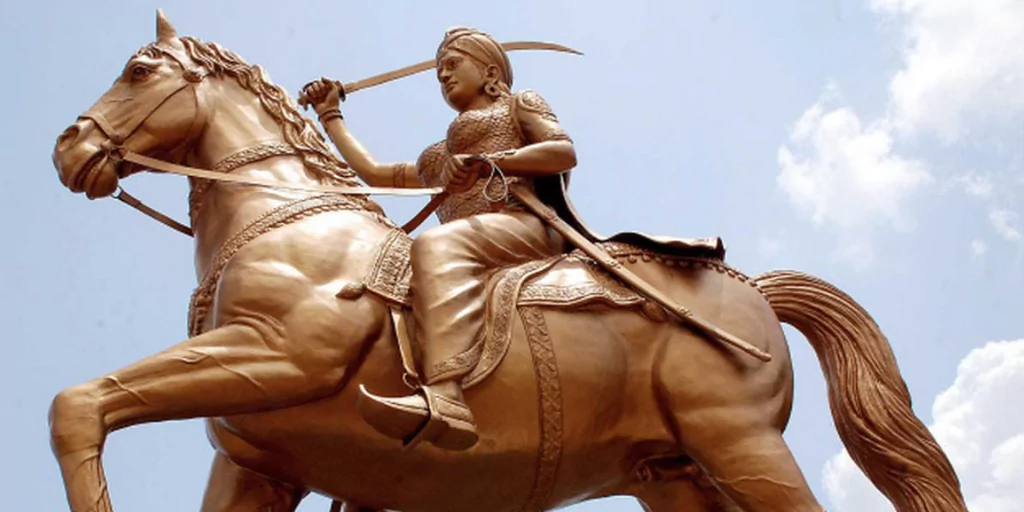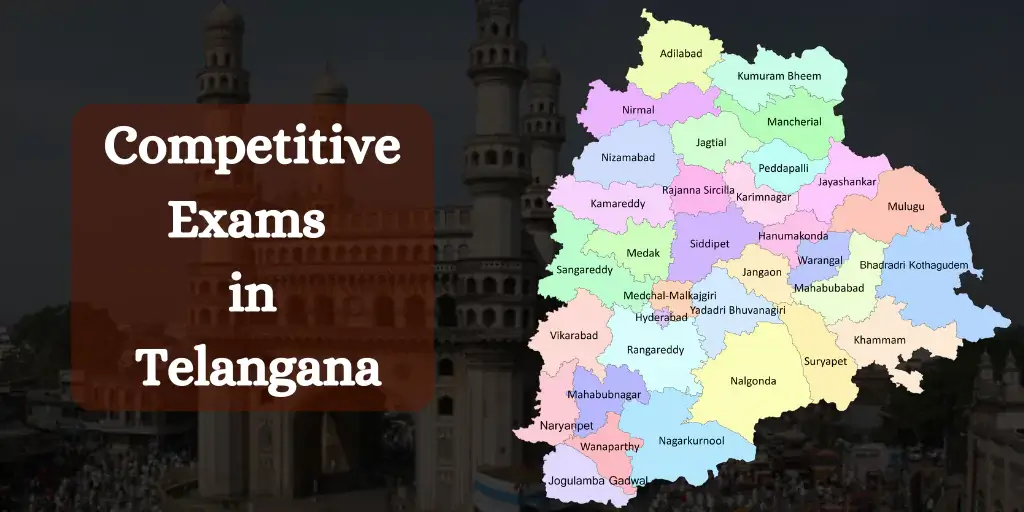Rani Rudrama Devi (1259-1289 CE) of the Kakatiya dynasty is one of the rare women monarchs in Indian history who stands out. She resisted patriarchal customs by ruling from Warangal, protecting her kingdom against invaders, and strengthening Telangana’s cultural and political identity. Her life narrative is one of bravery, tenacity, and vision, making her a renowned figure in South Indian history.
Early Life
Rudrama Devi was born to King Ganapati Deva, the Kakatiya dynasty’s most powerful ruler. Because the king had no male heir, he schooled Rudrama Devi in military, administration, and diplomacy. Unlike other women of her time, she was educated as a prince, acquiring the skills of statecraft and military strategy from an early age.
Marriage
Rudrama Devi married Veerabhadra, a Chalukya dynasty prince, to build political relations. Following her father’s death, she held complete authority as the ruler of Warangal. Her marriage was a political agreement rather than a power change, as she remained the kingdom’s lawful ruler and paramount authority.
Reign as queen
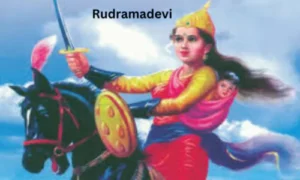
Rudrama Devi was formally crowned in 1261 CE, and she used the male title “Rudradeva Maharaja” in official inscriptions to prove her legitimacy.
- She carried forth her father’s reforms in land revenue and irrigation, securing agricultural prosperity.
- Promoted temple construction, literature, and Telugu culture, leaving behind an impressive architectural legacy.
- Maintained a robust administrative apparatus, bolstered by loyal generals and nobles.
Despite external challenges, Telangana experienced a period of stability and prosperity under her leadership.
Internal Revolutions
Not all nobility respected a woman’s authority. Several feudatories (nayakas) revolted, challenging Rudrama Devi’s authority. She subdued these revolts with her strategic acumen, demonstrating her capacity to demand allegiance while also maintaining political stability. Her fortitude in the face of internal disagreement bolstered her reputation as a resolute and fearless leader.
Battles and Military Campaigns
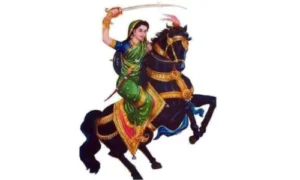
Rudrama Devi personally led troops into combat, garnering the respect of her people.
1. She defended her realm from the Yadavas of Devagiri and the Cholas of Nellore.
2. Fortified the Warangal Fort, making it a powerful defence centre.
3. Chroniclers describe her as a warrior queen who battled on horseback and directly commanded troops, which was unusual for women at the time.
Death and Legacy
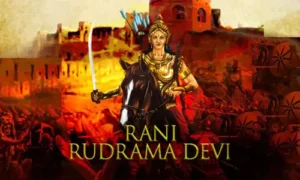
Rudrama Devi is thought to have perished in battle in 1289 CE, possibly against the Yadavas. Her death marked the end of an unparalleled reign, but her legacy has persisted.
1. She cleared the way for her grandson, Prataparudra II, the final great Kakatiya emperor.
2. Her bravery inspired folk songs, ballads, and legends in Telangana.
3. She is now recognised as a symbol of women’s empowerment and leadership, centuries ahead of her time.
Conclusion
Rani Rudrama Devi was not just a queen, but also a visionary leader and warrior who challenged gender norms in medieval India. Her strong governance, military prowess, and cultural patronage earned her the title of Telangana’s Warrior Queen in perpetuity. Her narrative continues to inspire, reminding us that guts and vision are what define great leadership, not gender.


